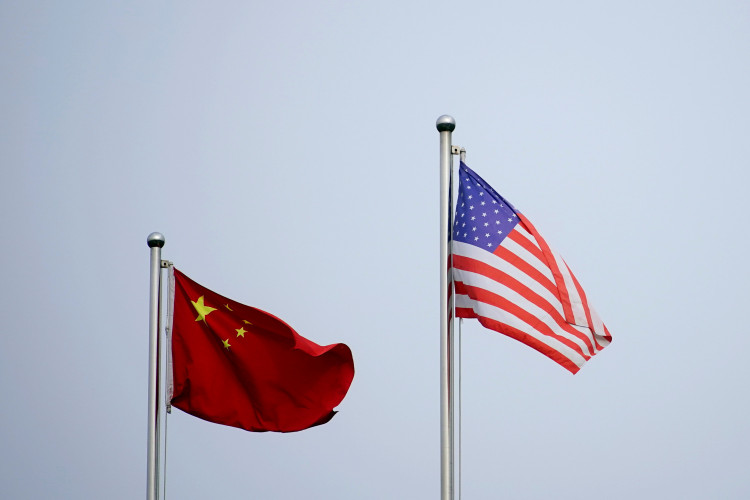The United States and China held their first informal nuclear arms talks in five years in March, focusing primarily on concerns related to Taiwan. This semi-official dialogue, known as Track Two talks, included former officials and academics from both countries, who can speak authoritatively on their respective governments' positions.
The discussions took place in a hotel conference room in Shanghai, with the U.S. delegation comprising about half a dozen delegates, including former officials and scholars. The Chinese side included scholars and analysts, among them several former People's Liberation Army officers. According to David Santoro, the U.S. organizer of the talks, the Chinese representatives assured their U.S. counterparts that Beijing would not resort to nuclear threats in a conflict over Taiwan, Reuters reported.
"They told the U.S. side that they were absolutely convinced that they are able to prevail in a conventional fight over Taiwan without using nuclear weapons," Santoro said. This reassurance came after U.S. delegates expressed concerns that China might use or threaten to use nuclear weapons if it faced defeat over Taiwan.
These informal discussions are part of a broader, two-decade-long nuclear weapons and posture dialogue that had stalled after the Trump administration withdrew funding in 2019. The dialogue resumed in part due to escalating tensions over Taiwan, a democratically governed island that Beijing views as its territory-a claim rejected by the government in Taipei.
A State Department spokesperson acknowledged the potential benefits of Track Two talks, though the department did not participate in the March meeting. "Such discussions cannot replace formal negotiations that require participants to speak authoritatively on issues that are often highly compartmentalized within [the Chinese] government circles," the spokesperson said.
The Pentagon estimates that China's nuclear arsenal increased by more than 20% between 2021 and 2023. It has also noted that China "would consider nuclear use to restore deterrence if a conventional military defeat in Taiwan" threatened Chinese Communist Party (CCP) rule. Despite these concerns, the Chinese delegation maintained that Beijing's policies of no-first-use and minimal deterrence remain unchanged.
The Track Two talks occurred against a backdrop of strained U.S.-China relations over major economic and geopolitical issues. The two countries briefly resumed formal Track One nuclear arms talks in November, but those negotiations have since stalled. Bonnie Jenkins, the top U.S. arms control official, expressed frustration in May over China's lack of responsiveness to U.S. proposals for nuclear-weapons risk reduction.
China's expanded nuclear arsenal, which includes anti-ship cruise missiles, bombers, intercontinental ballistic missiles, and submarines, has raised concerns in Washington. According to William Alberque of the Henry Stimson Centre, China's reliance on "risk and opacity" mitigates U.S. nuclear superiority, but this strategy limits constructive dialogue. "It's important to continue talking with China with absolutely no expectations," Alberque said.
The U.S. side sought clarity on whether China still adhered to its no-first-use policy and minimal deterrence doctrine, which date back to the 1960s. Santoro noted that the Chinese delegates reaffirmed these policies, stating, "'We are not interested in reaching nuclear parity with you, let alone superiority.'" His account was corroborated by fellow U.S. delegate Lyle Morris, a security scholar at the Asia Society Policy Institute.
The discussions also highlighted Chinese concerns about the survivability of their nuclear weapons in the event of a first strike. One Chinese delegate pointed to studies suggesting that Chinese nuclear weapons were still vulnerable to U.S. strikes, indicating that their second-strike capability might be insufficient.
Despite the challenges, both sides see value in continuing the dialogue. More discussions are planned for 2025, with the aim of reducing misunderstandings and managing the strategic competition between the two nuclear-armed powers. Santoro described the latest talks as frustrating but necessary, emphasizing the importance of keeping communication channels open.






